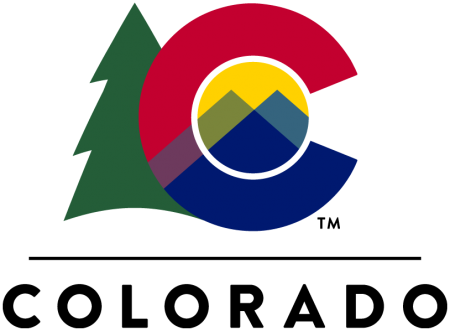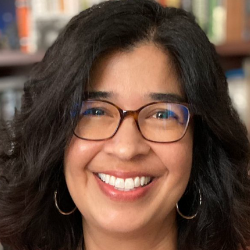
A Q&A With Colorado’s First Latina State Historian
Nicki Gonzalez, Colorado’s First Latina State Historian, on Colorado Women We Should Know
Nicki Gonzales is a Denver native and mother of two sons, Danny and Teddy. She serves as a professor of history and vice provost for diversity and inclusion at Regis University.

As the first Latina Colorado State Historian, what do you want to draw more attention to?
I want to draw more attention to histories that have been pushed to the margins and those that have been ignored or devalued. I will use this platform to highlight issues important to those communities – education equity is at the top of my list.
Also, getting youth engaged in history more broadly, but also in uncovering their own histories. In my experience as a teacher, knowing your roots is really empowering, especially for kids who are searching for identity in a really difficult world.
For Latinx who want to learn more about their history in Colorado, where can they learn more? What are the best resources?
Families! We tend not to think to talk to our grandparents, great aunts, and uncles. Also, there are so many free resources through university archives, Denver Public Library, History Colorado, the online Colorado History Project. These institutions have archives of newspapers, maps, county records, census data, meeting minutes, etc. They get excited to share information.
You studied the Chicano movement. What is noteworthy about the movement in Colorado?
When people think of civil rights, they don’t often think of the Chicano movement. But Colorado was a nationally significant location, with many leaders, conventions, contributions, and activism. And women in particular were central to the movement.
Their goals included equity, identity, and acknowledging the Indigenous roots of the community. They spoke out about police brutality, political involvement, educational equity, urban renewal, and job opportunities. A disproportionate number of Chicanos were drafted into the Vietnam war.
Ethnic studies and Chicano studies came from that movement. Now you have entire generations of students being educated about their history.
Everyone in Colorado lives on the homelands of Indigenous peoples. Why do land acknowledgements matter?
I love land acknowledgements. It gets people to think “whose land am I standing on and how was it taken away?” But, it can’t be an easy way out, and it must be followed by education and concrete steps toward equity to rectify those wrongs.
What do you wish more people know about the history of Indigenous people in Colorado?
That they were here… and still are. And, that their history is complex and diverse and has been buried and pushed to the margins by a mythology of the American Western past. I wish more people recognized the resilience of those groups who experienced force assimilations and land theft.
Recently, the Colorado State Historians have represented more diverse backgrounds and identities, such as your being the first Latina state historian. Why is this important?
These diverse perspectives will lead to a more complete account of our state’s history. As a result of my appointment, I have received numerous calls and emails in which people just want to tell their stories.
Just a couple days ago, I spoke with a man from Garcia, CO, who had boxes of documents about his community and had questions about the diversion of water from his community in the 1940s. This water theft resulted in large outmigration from Garcia, and really, the dying of a small town that no longer had the water they needed to survive. He now feels that his history has value at the state level.
These are my favorite moments.
Who are women in Colorado’s history that you wish were more well known?
Working class women and labor leaders. One woman is Guadalupe Briseño. She was labor leader who led a 1968 strike in Brighton against Kitayama Flower Company to bring better wages and treatment to the Mexican women who worked there. The strike wasn’t successful, but it brought awareness.
Recently I learned of another woman – Lucy Lucero – in West Denver, who opened her home quite publicly to LGBTQ youth who were turned away from their families or who became sick at the height of the AIDS crisis. In the Latino community, people knew her house was a place of food and music and everyone was welcome.
Who is a Colorado woman people will be learning about 50 or 100 years from now?
There are so many. One of my favorite is Shirley Romero-Otero, from San Luis, who has been working for justice and equity in land rights and education since the 1970s. Her story is amazing, and an example of using natural talent, chutzpah, political savvy, and an inner fire for justice to make a difference.
But there are others, such as teachers who are advocating for students and performing heroic efforts during this pandemic
I hope the historical record will highlight those women who have a heart to serve others.

